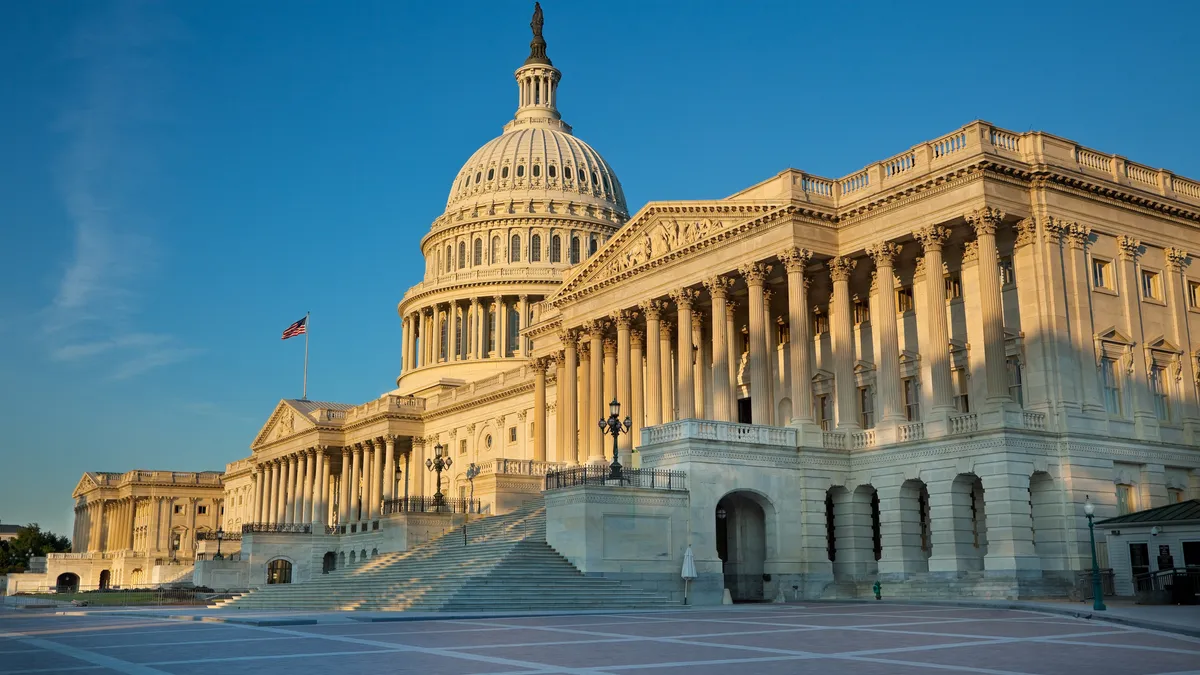Dive Brief:
- Support for rural schools and career and technical education were among priority spending areas identified by lawmakers during a Senate Appropriations subcommittee hearing with U.S. Education Secretary Miguel Cardona on Thursday.
- At the hearing, Cardona promoted the Education Department's FY 2024 budget proposal, which calls for a 13.6% increase over the current year budget for a total of $90 billion for K-12 and higher education programs. The plan's highest spending categories for K-12 include funding for schools in low-income communities and for special education services.
- While Thursday's nearly one-and-a-half-hour-long hearing was polite between Cardona and the lawmakers, with several mentions of shared priorities, this budget season is growing more contentious. As a condition of raising the debt ceiling, House members voted April 26 to make significant cuts to discretionary spending, which Cardona said during the hearing would have a "devastating effect on students."
Dive Insight:
The Education Department said a 22% reduction to Title I would equal a loss of $4 billion and 60,000 fewer teachers and related service providers. Special education services for students with disabilities would lose $3.1 billion and 48,000 teachers.
"We're talking teachers for students that struggle with reading. We're talking cuts to teachers for students with disabilities — those who I would argue were most impacted by the pandemic," Cardona said of the proposed spending reductions.
Subcommittee Ranking Member Shelley Moore Capito, R-W.Va., said she was supportive of the Education Department's plan to prioritize Title I, the Individuals with Disabilities Education Act and CTE programs, but disappointed in proposals for free community college and universal preschool. Those, she said, were "ill-advised and unlikely to be considered."
Support for multiple pathways to careers and boosting CTE opportunities was an area that seemed to have widespread support across the subcommittee.
"Addressing our nation's education and workforce needs is critical to maintaining our competitiveness globally," said Subcommittee Chair Tammy Baldwin, D-Wis., "We have near record low unemployment, but also near record job openings, including 174,000 unfilled openings in Wisconsin, which I hear echoed in my conversations with employers in my state."
The Education Department's budget includes an increase of $43 million for a total of $1.47 billion for Career and Technical Education State Grants. Another $200 million would be dedicated to a Career-Connected High Schools initiative, which would promote high schoolers' access to industry-backed credentialing, dual enrollment and work-based learning opportunities.
Some senators also voiced concerns about teacher shortages. Cardona spoke about efforts to boost recruitment efforts in rural areas and localities in general, particularly through apprenticeship programs and other career pathways.
Other topics lawmakers questioned Cardona about included the Education Department's support for school facility upgrades, student academic progress and mental health wellbeing, the fentanyl crisis, education for Native Hawaiians, school safety and student loan forgiveness.
One lawmaker also asked Cardona about his thoughts on the increasing number of book bans.
While Cardona said those are decisions made at local levels and not the federal level, he said, "The degree to which we have state leaders taking books out of the hands of kids and decimating libraries and politicizing what should be something that unifies us — making sure that our students are literate, providing them diverse texts so they can learn about different cultures, and even explicit bans on history that teaches the experience of Black Americans — that to me is extremely alarming."
The budget debate will continue through the spring and summer. The federal government’s new fiscal year starts Oct. 1.
Senate Appropriations Committee Chair Patty Murray, D-Wash., urged lawmakers to work together on a final spending package.
"A smooth appropriations process is critical if we want to make sure that our nation remains competitive on the world stage. We have a responsibility here to work in a timely, bipartisan way to pass these funding bills and make the investments that our nation needs to avoid falling behind," Murray said.















